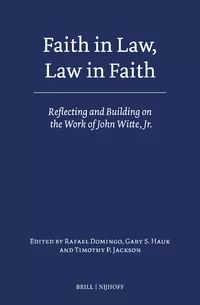Professor John Witte is a central figure in the coming of the field of law and religion. Together with Professor Harold Berman, whose Law & Revolution set the terms of the field as a distinctive discipline, Witte’s work has been seminal across a broad swath of critical questions. In some recent work, I describe Witte’s efforts as in some measure moved by a kind of counter-strict-separationism in the way that law and religion were viewed in the mid-20th century. His was, in its way, a project of reintegration.
Be that as it may, I want to highlight a wonderful new book of essays just published by Brill all reflecting on various of Witte’s contributions: Faith in Law, Law in Faith, co-edited by Professors Rafael Domingo, Gary S. Hauk, and Timothy P. Jackson. The essays in this book are all free to read, all available for download at the link above, so you have no excuse but to dive in. They include pieces by such giants as Professors R.H. Helmholz, Nicholas Wolterstorff, Mark Noll, and many other luminaries.
Of particular interest for us here at the Center and at The Catholic University of America in general is an essay by Professor Samuel Bray of the University of Notre Dame Law School, titled, When Catholicism Was Part of the Common Law: The Influence of the Catholic Intellectual Tradition, which Professor Bray first delivered as a talk at an event of the Center for Constitutional Originalism and the Catholic Intellectual Tradition with Professor John Stinneford and our own Professor Will Kamin.
Professor Bray’s core claim is that to the extent that the Catholic Intellectual Tradition is limited to Roman Catholic thinkers and sources, then its influence on the English (and by extension, the American) common law was comparatively limited, in light of the fact that the “common law was by and large developed by people who had taken an oath not to follow the commands of the bishop of Rome.”
Nevertheless, Bray writes, there are three important modes in which one can see the influence of the Catholic Intellectual Tradition on the common law, which he calls “inheriting, conversing, and generating.” I am going to quote a bit from his rich discussion of the “generating” modality of influence (omitting footnotes). In my own view, Bray’s points have great interest and suggest both a challenge and a rather great opportunity for us at the Center for Law & the Human Person and for the project of the recovery of classical legal thought.

The Roman and non-Roman sides both appealed to the scriptures and invoked the tradition of the early church. Each side thought that it would win the argument if it could only show that the other side had—to use a Newmanesque word long before its time—“developed” the doctrine. All agreed that whoever had not changed or augmented the deposit of faith was the truly catholic side.
So in Paris and Rouen, on the French side of the English Channel, the Catholic intellectual tradition was proceeding apace. And on the other side of the Channel, in London and Canterbury—by the lights of the English bishops and jurists—the Catholic intellectual tradition was also proceeding apace. The jurists in the Church of England considered themselves Catholic. The preface to the 1662 Book of Common Prayer says the revisers rejected any proposed changes that would strike at the doctrines and practices “of the whole Catholick Church of Christ.” The Church of England, including in its members the common law judges, prescribed the regular recitation of the Apostles’ Creed, Nicene Creed, and Athanasian Creed. These creeds refer, respectively, to “The holy Catholick Church”; “one Catholick and Apostolick Church”; and “the Catholick Faith” and “the Catholick Religion.” The Prayer for All Sorts and Conditions of Men, which is ordered for use four days a week, includes a petition for “the good estate of the Catholick Church.” Similar references can be found in the canons of the Church of England, Bishop John Jewel’s Apology, and Richard Hooker’s Laws of Ecclesiastical Polity.
In other words, if we are going to try to understand the jurists who developed the common law, we will find that they publicly identified themselves as “Catholic,” in the sense of being part of the universal church…
[T]he hallmarks of the Catholic intellectual tradition characterize leading thinkers before the Reformation as well as after its inception, in both Catholic and Protestant countries. It would be unimaginable to read the works of Saint Augustine and Francisco Suárez, along with the works of Richard Hooker and Johann Oldendorp, and not find in all of them “the integration of reason and revelation.” If I could put the point even more expansively, what Professor [John] Cavadini describes as the hallmarks of the Catholic intellectual tradition are simply the hallmarks of Mere Christianity. And perhaps, dear reader, you are aware of who wrote that book.
Allow me to put this a little more crisply. If we were to say the Catholic intellectual tradition means the Roman Catholic tradition, then there would be some influence on the common law. That influence would have two modes: inheriting and conversing. But in this view, the Catholic intellectual tradition would still have been viewed by the great common law judges as something apart. They could see it from where they stood. But it was in the distant past or in the distant present, across the waters of the English Channel.
Yet the contours of this intellectual tradition are not specifically Roman Catholic. All the great English jurists I mentioned would find themselves squarely within what could be called the Catholic, or catholic, intellectual tradition. In fact, given the cross-confessional argument and pollination in the early modern period, across the republic of letters, it is plausible to think that sharply demarcated “Catholic” and “Protestant” intellectual traditions are from a later time. Perhaps that time is even as late as the nineteenth century, with the rise of German universities and a resurgent papacy marked by skepticism of modernity…
In short, if we recognize a broader referent for the Catholic intellectual tradition, one that encompasses at least Western Christianity, the boundaries of the concept will prove less anachronistic. And then, once we allow the common law judges to fit within this tradition, the question asked at the start of this chapter receives a dramatic answer. We are face to face with the vast influence of Christianity on the common law.


